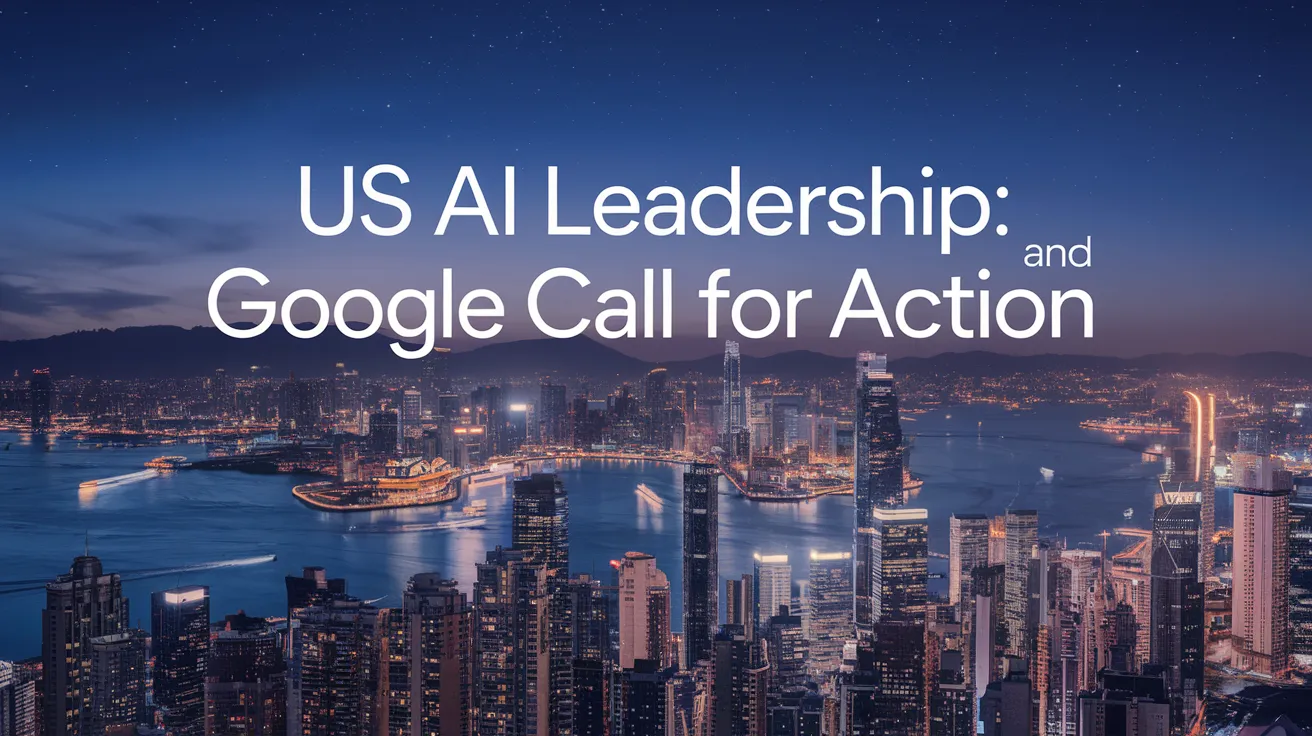US AI Leadership: OpenAI and Google Call for Action

In a significant call to action, OpenAI and Google are urging the US government to take decisive measures to secure the nation’s leadership in artificial intelligence (AI). In a letter to the Office of Science and Technology Policy, OpenAI warned that as American AI approaches artificial general intelligence (AGI), the threat posed by the Chinese Communist Party (CCP) to overtake the U.S. by 2030 is real and pressing.
OpenAI stated, “The Trump Administration’s new AI Action Plan can ensure that American-led AI built on democratic principles continues to prevail over CCP-built autocratic, authoritarian AI.” Similarly, Google echoed these concerns, expressing that while the U.S. currently leads the global AI landscape, this dominance is not guaranteed.
A Plan for AI Action
OpenAI highlighted the transformative potential of AI to enhance human ingenuity, suggesting that the current advancements are comparable to historical innovations like the domestication of horses or the invention of the printing press. Sam Altman, CEO of OpenAI, remarked that society is at the “doorstep of the next leap in prosperity” and emphasized the importance of ensuring freedom of intelligence. He advocated for making AGI accessible to all while mitigating bureaucratic hurdles and autocratic control.
OpenAI outlined three foundational principles regarding AI scaling:
- The intelligence level of an AI model correlates with the logarithm of resources utilized for its training and operation.
- The cost of achieving a specified level of AI capability decreases approximately tenfold every year.
- The timeline required for improvement of AI models continues to shorten.
Google’s Three-Point Plan
In addition to OpenAI’s proposals, Google presented a comprehensive three-point plan focusing on critical areas:
- Invest in AI: Google called for coordinated action to manage the increasing energy demands from AI infrastructure, balanced export controls, sustained R&D funding, and supportive federal policy frameworks.
- Accelerate government AI adoption: Google encouraged the federal government to set an example by adopting and deploying AI solutions, including implementing multi-vendor interoperability and improving procurement processes.
- Promote pro-innovation internationally: Google advocated for international economic policies that support AI innovation, encouraging market-driven technical standards while addressing national security risks.
Policy Recommendations
Both companies proposed detailed policy recommendations for the US government:
- OpenAI’s proposals:
- A regulatory strategy promoting voluntary partnerships between the public sector and private companies to foster innovation.
- An export control strategy to enable global acceptance of American AI while safeguarding national dominance.
- A copyright strategy to protect content creators while allowing American AI systems to learn from copyrighted materials.
- An infrastructure strategy to bolster growth, focusing on an AI-ready workforce and supportive ecosystems.
- A government adoption strategy to model the effective use of AI for the benefit of citizens.
- Google’s recommendations:
- Strengthening energy policies to support domestic data centers, including transmission reforms.
- Implementing balanced export controls that facilitate market access while managing risks.
- Accelerating AI research and development by streamlining access to necessary computational resources and fostering public-private partnerships.
- Establishing a pro-innovation federal framework to ensure consistent AI laws, promote fair learning, and prepare the workforce for AI skills.
The Need for Urgent Action
Both OpenAI and Google emphasized the necessity for quick and decisive action to maintain American supremacy in the AI arena. OpenAI expressed that the current lead is diminishing, while Google underlined that forthcoming policy choices will shape the global competition in AI technology.
As Google succinctly put it, “We are in a global AI competition, and policy decisions will determine the outcome. A pro-innovation approach that protects national security and ensures equitable benefits from AI is crucial to unlocking its transformative potential.”